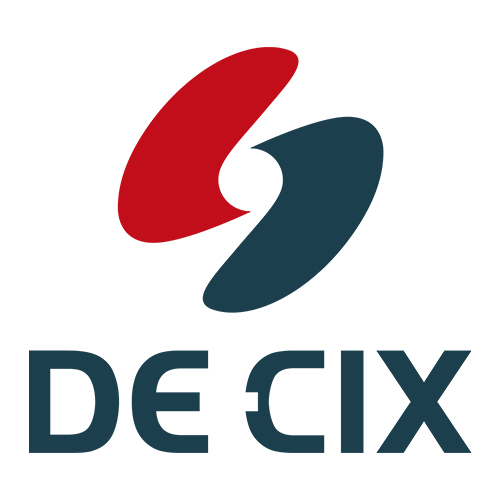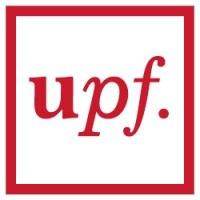Closing the Gap – Preparing the Workforce of the Interconnected Future
Professor Miquel Oliver from the UPF Barcelona, on the DE-CIX/UPF Interconnection Academy, aimed at overcoming the scarcity of interconnection specialists.

©Iurii Motov | istockphoto.com
In October 2021 DE-CIX, the world's leading Internet Exchange (IX) operator, and the Pompeu Fabra University, a leading institution in Barcelona with international standards in research, innovation and teaching, announced their partnership in the field of interconnection, to create a standardized global education and training program for developing talent in the interconnection industry. The DE-CIX UPF Global Interconnection Academy will be established to promote teaching, research and the transfer and dissemination of knowledge in of the interconnection of data networks. The training program will prepare high potentials, well recognized and highly knowledgeable interconnection professionals for the market, by combining advanced technical, operational, and business-related knowledge. The planned start for the training courses is October 2022. We spoke with Professor Miquel Oliver from the UPF, on the DE-CIX/UPF Interconnection Academy, aimed at overcoming the scarcity of interconnection specialists.
dotmagazine: UPF has recently begun collaborating with DE-CIX to establish the DE-CIX Interconnection Academy, which you will be heading. What is the overall objective of the academy and the partnership with DE-CIX?
Professor Miquel Oliver: Yes, the UPF has recently started a collaboration with DE-CIX to join efforts in research and education in the area of Internet protocols and traffic exchange. One of the focal points of such collaboration is to leverage the Interconnection Academy with the main objective of covering a large gap in the demand of professionals in the area of Internet traffic exchange. Currently, we have excellent professionals in the IT area of software development for services and applications, however, it is difficult to find enough professionals in the fields of networking and Internet protocols, which are crucial to build more secure and solid interconnection infrastructures. This is the gap addressed in our joint effort.
dot: What distinguishes UPF as a university?
Oliver: Founded in 1990, UPF is a public university based in Barcelona which is highly competitive in global research, and aims to transform education to respond to future challenges. In the context of major demands from our society, UPF has undertaken an imperative commitment as a tertiary education and research institution: to help find solutions for the main challenges facing humanity and the planet, as set out in our Planetary Wellbeing initiative, a long-term institutional strategy launched in 2018 and inspired by the United Nations Sustainable Development Goals (SDGs)
dot: What is the significance of the joint UPF/DE-CIX Chair?
Oliver: A joint Chair is the perfect instrument to set up collaboration between the industry and academia. In this particular case, DE-CIX and UPF – as global leaders in their respective fields – can join forces and maximize the dissemination and impact of all the activities around the Interconnection Academy. This Chair is therefore a meeting place where talent, knowledge and research can come together to generate innovation and key assets for our society.
dot: Why is it important to disseminate knowledge and an understanding of interconnection?
Oliver: The Internet is a global phenomenon where OTT (Over-The-Top) and content providers are currently leading the exponential growth in data traffic. Consequently, the majority of IT engineers are more centered on the creation of innovative applications and services. However, the network demands for interconnection and upgrades in capacity to face this increase becomes a key business per se. Without proper knowledge of networking technologies, the growth of the Internet could end up being compromised due to a lack of capacity and security.
As a result, the current trends in interconnection need the application of advanced techniques in data science and artificial intelligence. Both technologies will play an important role in future trends to provide a safer and more robust interconnected world.
dot: Will the courses in the Interconnection Academy only be for computer science and/or engineering students? What professional advantages does a certification in interconnection offer to your potential students?
Oliver: The main focus of the training will be on people with an IT engineering background, such as computer sciences, networking, audiovisual systems, electronics, etc. But we will also address some courses to non-technical profiles to understand new business models based on connectivity (capacity, latency, quality of service, and security) as a key asset on the Internet.
The certification in interconnection issued by the Academy will recognize a set of competences and skills directly related to the Internet networking sector. The certificates will open the door for a specific labor market for companies involved in Internet traffic exchange and their main customers demanding connectivity solutions.
dot: Will these courses only be available to students on campus in Barcelona?
Oliver: The courses are conceived as global in scope. So, the majority will be online using a flexible approach to create the training courses, providing continuous assessment during the course. As a result, the courses will be available worldwide. We will plan some wrap up activities in Barcelona or Frankfurt to reinforce the training and to create a network of professionals in the area of interconnection. The combination of online training with face-to-face activities will address the current digital divide, attracting talent from any corner around the globe.
dot: What other activities will the Interconnection Academy be involved in and what do you hope to achieve with these?
Oliver: Training courses will be the center of the Academy, but not the only activity. We also plan to develop a set of activities around the topic of Internet traffic exchange, such as the analysis of traffic patterns to prevent security threats, the use of data science algorithms to predict traffic usage and network planning, promoting internships at DE-CIX facilities for undergrad and masters students, or meeting experts from the area to discuss emerging trends in data traffic exchange.
Miquel Oliver is a full professor in the area of networking protocols and Internet strategies and technologies at the Universitat Pompeu Fabra in Barcelona. He leads the NetS research group, where research on how Internet shapes our society is developed. He enjoys a variety of visiting appointments with leading institutions on this research field.
Please note: The opinions expressed in Industry Insights published by dotmagazine are the author’s own and do not reflect the view of the publisher, eco – Association of the Internet Industry.




